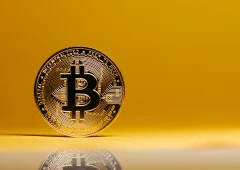Big Financial Players Eye Stablecoin Launch
10.03.2025 17:54 2 min. read Alexander Stefanov
Stablecoins are attracting major attention from traditional financial players, with institutions like Bank of America, PayPal, and Revolut moving to introduce their own versions in response to a rapidly evolving market.
This shift is fueled by favorable regulations and the growing importance of stablecoins in international payments.
In line with this trend, banks and fintech companies are eager to tap into the expanding space. For example, Bank of America is reportedly preparing to launch a stablecoin once it receives regulatory approval. PayPal is also expanding its stablecoin offerings, targeting greater adoption among U.S. businesses for cross-border payments. The move reflects a broader recognition that stablecoins could redefine financial transactions.
The increased interest is largely driven by recent changes in U.S. crypto regulation, including policies introduced by the Trump administration, which has promoted digital assets as part of its broader economic strategy. This shift in government policy is making stablecoins more attractive, as institutions are now more confident in their potential role in the financial system.
As more financial giants prepare to enter the stablecoin market, the U.S. government is also exploring blockchain and stablecoin solutions. The Department of Housing and Urban Development (HUD) is considering integrating these technologies to streamline processes like grant tracking and payments. These efforts signal the U.S. government’s commitment to digital asset adoption, paving the way for a future where stablecoins play a larger role in both the public and private sectors.
-
1
BNB Chain Upgrades and Token Delistings Reshape Binance Ecosystem
16.07.2025 22:00 2 min. read -
2
Most Trending Cryptocurrencies on CoinGecko After Bitcoin’s New ATH
11.07.2025 19:00 2 min. read -
3
Altcoin Supercycle? Analysts Signal ‘Banana Zone 2.0’ as Market Erupts
13.07.2025 19:00 2 min. read -
4
Solana Price Prediction: SOL Could be Ready to Move to $225 After Breakout
21.07.2025 17:14 3 min. read -
5
Ethereum Tops $3,285 for First Time Since January
17.07.2025 7:00 1 min. read
Interactive Brokers Weighs Stablecoin Launch
Interactive Brokers, one of the world’s largest online brokerage platforms, is exploring the possibility of issuing its own stablecoin, signaling a potential expansion into blockchain-driven financial infrastructure as U.S. crypto regulation begins to ease.
BNB Coin Price Prediction: As BNB Chain Daily Transaction Volumes Explode Can It Hit $900?
Trading volumes for BNB Coin (BNB) have doubled in the past 24 hours to $3.8 billion as the price rises by 7%. This favors a bullish BNB Coin price prediction at a point when the token just made a new all-time high. BNB is the second crypto in the top 5 to make a new […]
PENGU Price Soars While Whale Transfers Raise Alarms
The Pudgy Penguins’ PENGU token is under intense scrutiny after large transfers from its team wallet raised potential red flags.
BNB Hits New All-Time High Amid Token Launch Frenzy
BNB surged to a new all-time high on July 28 around $860, breaking above the critical $846 level following a sharp 7% intraday move.
-
1
BNB Chain Upgrades and Token Delistings Reshape Binance Ecosystem
16.07.2025 22:00 2 min. read -
2
Most Trending Cryptocurrencies on CoinGecko After Bitcoin’s New ATH
11.07.2025 19:00 2 min. read -
3
Altcoin Supercycle? Analysts Signal ‘Banana Zone 2.0’ as Market Erupts
13.07.2025 19:00 2 min. read -
4
Solana Price Prediction: SOL Could be Ready to Move to $225 After Breakout
21.07.2025 17:14 3 min. read -
5
Ethereum Tops $3,285 for First Time Since January
17.07.2025 7:00 1 min. read


